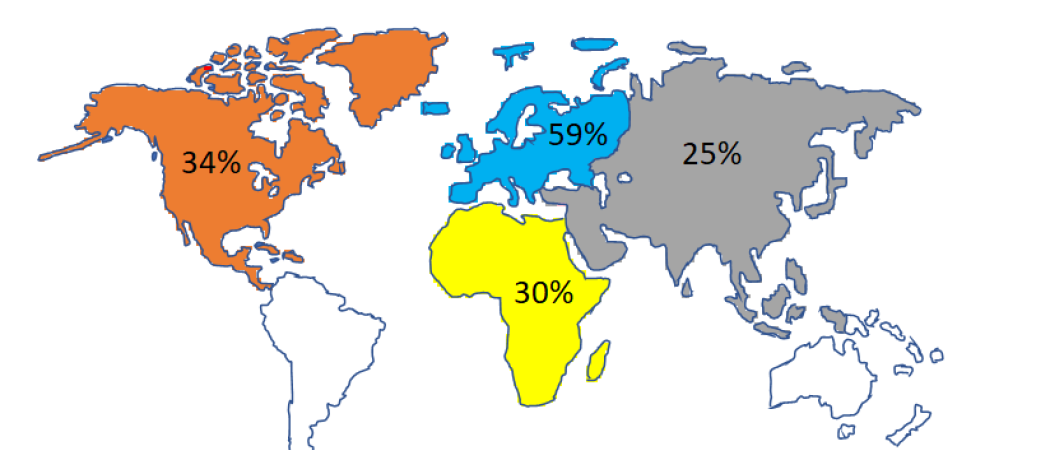
Percentage of researchers in each continent who travel at least twice a year
In the 21st century, science is one of the world’s most mobile professions. Researchers travel short-term for conferences or meetings, and many relocate to another country for their research. An online survey of 2,465 researchers in 109 countries, by Rand Europe for the Together Science Can campaign and the Wellcome Trust, found Europeans are the biggest travellers – and 48% of the researchers surveyed had trained or worked in another country for at least one year. Nearly all of them – 96% - said research benefits when people move.
But there are obstacles to mobility. Money is the biggest: besides the physical travel costs (often provided by a research funder), there are the local living costs (an obstacle to 27%), family problems (27%) and visa hassles (22%.) Then there’s political problems, of Brexit and Trump. As one Zimbabwean researcher told the pollsters: “After completing my PhD, I was asked to leave the US within 30 days even though I needed to complete my experiments.” The researcher is now working in China.





 A unique international forum for public research organisations and companies to connect their external engagement with strategic interests around their R&D system.
A unique international forum for public research organisations and companies to connect their external engagement with strategic interests around their R&D system.